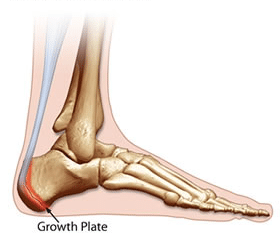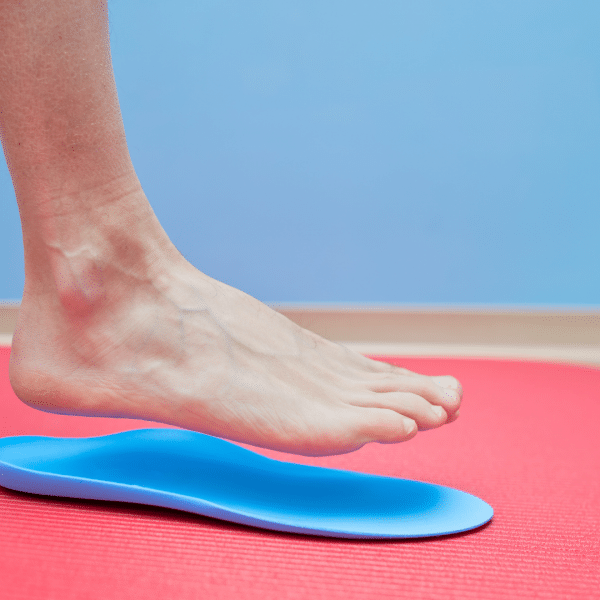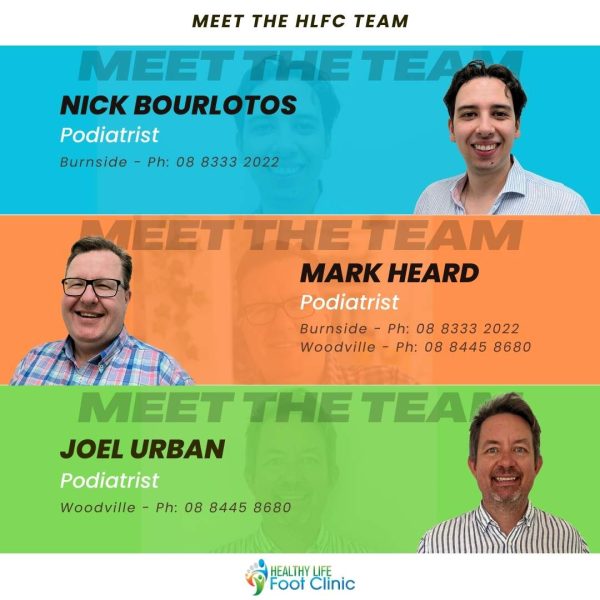Do you have a child who is limping after running?
Is your child complaining of pain at the back of their heel?
Your child may have developed a condition called “Calcaneal Apophysitis”, also commonly referred to as “Sever’s Disease”.
***Can we stress that Sever’s Disease is not a “disease” – it is named after Dr Sever who first described the condition and it’s an inflammation of the back of the heel bone.

So what is “Calcaneal Apophysitis”? This is where the back of the heel bone becomes very tender to touch or painful when you run or jump. Medically, what is happening is that your child’s heel bone (called the calcaneus) has become inflamed (medically called apophysitis) at the back where the big Achilles tendon attaches.
Who gets it? We see this condition most commonly between the ages of 8 and 14 and it’s more common in boys than girls. Kids that play sports like soccer, football/AFL and basketball are much more susceptible because of the amount of running, jumping and their footwear.
Why does it happen at that age? Between the ages of 8 and 14, the heel bone undergoes a lot of growth and development. At the back of the heel bone is what is called a growth plate or “apophysis” – think of it like a small extra piece of bone. This small section is where the big Achilles tendon attaches and so when we run or jump, there is a lot of strain applied to this area. By approximately 14, the growth plate has fully developed and so the problem will often settle by then. But until then, the BIG tendon is pulling on the SMALL bone, and it becomes inflamed and painful.
Looking for an Adelaide Podiatrist near Burnside or Woodville?
Contact Us or Book Online 24/7
That’s when your child starts to limp, complain of pain and may even want to stop playing sport – and that’s pretty upsetting for your child and you – we want our kids active, playing sport and having fun.
“My son was playing a lot of basketball when he was young. At 12 he played club basketball and being tall and quite skillful, he played and trained a lot. He started complaining of heel pain. He was limping. It became harder to get through a full game. Eventually, he had to sit out part of the season to let it settle down” – Mark Heard
What’s causing it in the first place? There are multiple factors as to why someone develops calcaneal apophysitis but the most common causes include:
- Age – if you are between 8 and 14, you are more prone
- Sport – if you play football, soccer or basketball
- Footwear – shoes/boots with a low heel (most football, soccer boots are like this)
- Foot posture – being flat footed
- Tight calves/Achilles tendon
- Active – the more active you are, the more prone you are
How do I know if my child has calcaneal apophysitis? You won’t, but if you see some of the following your child might have it and it needs to be assessed:
- Pain in the back of the heel, around the heel or under the heel
- Limping
- Can’t run out a game due to pain
- Walking on their toes
- Pain when you touch or squeeze the heel
So what can be done to fix it? Most important is the need to get it assessed early. Foot pain in children is not normal so don’t ignore it. Never think your child is soft if they say they have heel pain or are limping. While heel pain can generally be treated simply and relatively quickly, there are cases where the pain will require stopping all sport.
Looking for an Adelaide Podiatrist near Burnside or Woodville?
Contact Us or Book Online 24/7
Following our assessment and assuming it is calcaneal apophysitis, common treatment may include a mix of the following:
- Calf/Achilles stretching if they are tight – be careful as some stretches will aggravate it though
- Boots/shoes that have a heel raise i.e. not flat from heel to toe
- Placing additional “heel raises” into the boot/footwear
- Icing may help
- Rest or reduction in activity
- Foot supports/orthotics if your child has poor foot posture

Most importantly and repeating ourselves, foot pain in children is not normal. Don’t ignore it. Don’t tell your child to harden up/tough it out/push through it – this is going to make it worse and make it last longer.
Let’s help our kids stay active, healthy and enjoy their sport – pain free!
If your child has heel pain, is limping during or after sport or you just want further advice on the best footwear to minimise injury, give us a call and make an appointment or book online here.

